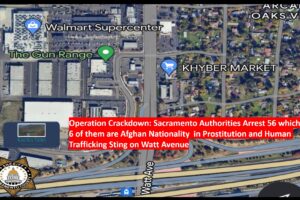Since the Taliban takeover of Kabul in 2021, a significant number of Afghans sought refuge in the United States, either as Green Card holders or as refugees. However, a new challenge has emerged for Afghan Muslim refugees residing in the U.S. as they face obstacles in obtaining visas for the annual Hajj pilgrimage due to recent regulations imposed by Saudi Arabia.
In the aftermath of the fall of Kabul, a wave of Afghan citizens fled their homeland, seeking safety and stability. The United States became a primary destination for many Afghans, providing them with opportunities for a fresh start. Whether through green card programs or refugee status, these individuals began rebuilding their lives in the U.S.
Recognizing the unique needs of this influx of Afghan refugees, more than 25 mosques and six travel agencies have emerged in states like California, Virginia, and Texas. These establishments have been working diligently to facilitate the visa application process and provide flight tickets for Afghan Muslim refugees eager to participate in the sacred Hajj pilgrimage.
Despite their efforts, Afghan refugees now find themselves caught in a bureaucratic quagmire due to new regulations imposed by Saudi Arabia. The recent rule stipulates that individuals holding Afghan passports are ineligible to apply for visas, creating a challenging situation for those who have sought asylum in the United States and hold valid U.S. Green Cards.
This visa restriction not only hampers the religious aspirations of Afghan refugees but also raises concerns about the potential exclusion of a specific group from participating in a significant Islamic ritual. The Afghan community in the United States, already grappling with the challenges of resettlement, now faces the added burden of navigating visa hurdles for the Hajj pilgrimage.
The Afghan diaspora, community leaders, and advocacy groups are urging international bodies and governments to address this issue promptly. They emphasize the importance of religious freedom and the need for inclusive policies that do not discriminate against specific nationalities.
The plight of Afghan refugees in the United States, particularly concerning their ability to participate in the Hajj pilgrimage, highlights the complexities of their resettlement journey. As discussions and negotiations unfold, the international community needs to address these challenges, ensuring that Afghan refugees are not denied the opportunity to fulfill their religious obligations due to diplomatic and bureaucratic impediments.





